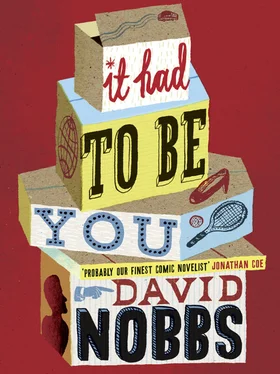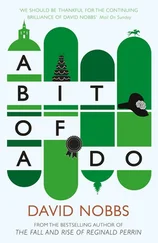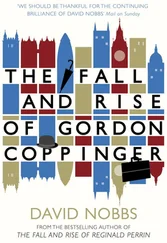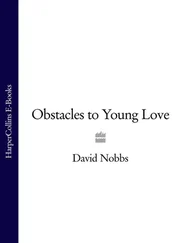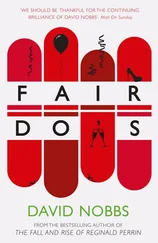He walked slowly back to the phone, taking a sip of the drink as he did so. He realised that he hadn’t done a very good job with the dilution. Diluting drinks had never been one of his strong points. And a gin, Noilly Prat and tonic just wasn’t quite right. What did it matter? What did the taste of a drink matter compared with … with the enormity…
He decided not to dilute it further. He would sip it slowly instead.
Who should he ring next? Helen? He still wasn’t ready for that. Someone on Deborah’s side? Have to be her sister. Couldn’t face that yet either. Couldn’t face being the messenger of such terrible news. A whole family, a close family, all in tears. Couldn’t bear the thought.
Couldn’t bear telling the terrible news, when to him it wasn’t terrible, that was what was so terrible.
Have to be Charles, his eldest brother, his hero, his mentor, his inspiration, his guide, his lodestone.
‘That’s the phone.’
‘Don’t answer it. Valerie, please. Don’t.’
‘I should. It might be somebody.’
‘It might be a call centre in India offering me free balance transfers. Don’t go.’
It was too late anyway. It had gone onto the answer machine.
‘Darling, I really want this meal uninterrupted. This oxtail is awesome. Awesome.’
‘I can’t believe you wanted oxtail in June, in a heatwave.’
‘Well, I did. I get salads everywhere I go. Thank goodness I’m not going to America this summer. I hate those salads as starters. So pointless.’
‘Can I at least go and listen to see if there’s a message?’
‘You sound as if you think you need my permission.’
‘I do when you’re like this. I do when your stomach’s involved.’
They were eating in the dining room. The mullioned windows were open, a light breeze from the east was wafting in, rippling Charles’s luxuriant beard ever so gently, and it was pleasantly cool in the dark elegant sixteenth-century room.
Valerie – Charles didn’t permit her to be called Val by anyone – was seated at the head of the table, with Charles at her left hand. The table was so large that to have each sat at one end would have been to risk seeming like a scene in a comedy, and Charles, for all his virtues, didn’t much like being an object of amusement.
‘Honestly, if it’s an emergency, they’ll ring back straight away. Go if you must, darling, I’m not stopping you, but I really don’t want you to. These next days are going to be a logistical nightmare, the oxtail is quite beautiful, these sweet young turnips are little poems, it isn’t just a question of my stomach, it’s a question of respect, Valerie. Respect for your wonderful cooking. Please. I need this evening.’
‘All right.’
Charles ate more slowly with each passing year, and every mouthful of this was worth savouring. The carrots were bursting with flavour, the meat clung gelatinously to the bone, the sauce was rich and deep. The thought of five concerts in six days in Europe, planned by a madman, faded. And then, three days’ holiday in lovely, much-mocked Belgium, in Ghent, which was Bruges without the crowds, the reflections of the spires and gables shimmering on the canals, the choice of cold beers, the marvellous food, French quality, German quantity. His first break for four months. He could hardly wait. Poor Valerie. She didn’t really like cities. Poor Valerie, she found his long meals tedious. She was still itching to listen to their message. He chewed even more slowly, and he was going to have seconds.
It wasn’t that he was cruel, but this was his day, his space, his renewal.
Valerie didn’t understand.
Deborah would understand.
Sometimes – how James would laugh if he mentioned it – he envied his youngest brother.
Philip, the middle brother, was sitting outside the little wooden summer house in his pleasant garden on the outskirts of Leighton Buzzard, reading in the evening sunshine. He had taken his massage chair outside and was gently manipulating himself on it as he read. He was finding it hard to concentrate this evening, in this heat, and the book was hardly a page turner. It was a comparative study of acidity in the oceans.
The cordless phone sounded shrill and invasive in this suburban setting. It gave him quite a shock.
Not as great a shock as James’s news, though.
‘Deborah!’
‘I know.’
‘Of all people.’
‘Exactly.’
‘How?’
Philip listened to the story of the car crash in silence. Then he said, ‘Oh, James, I am so sorry. Bloody bastard young men with too much money. Bloody Jeremy Clarkson has a lot to answer for.’
‘Oh, Philip, that’s so unfair. That’s ridiculous. Why drag him in? Anyway, who cares? She’s dead, Philip.’
‘Shall I come over?’
‘This sounds awful, Philip, but … I don’t think I could cope … not tonight.’
‘No, no. No problem. Tomorrow, maybe. I’m supposed to be at work, but I can come any time if you’d like it.’
‘I don’t know. I just don’t know, Philip.’
Philip said that he would ring in the morning about eight, before he set off, to see if James needed him.
‘Thanks.’
‘James?’
‘Yes?’
‘Love you.’
Who next? Mum? Oh, God. She’d blame him. I knew something like this would happen. You haven’t looked after her.
He went to the gin bottle, held it over his glass, thought of his mum listening for signs of thickening in his speech, sighed deeply, put it down again, and, on an impulse, phoned Deborah’s sister.
‘Fliss Parkington-Baines.’
‘Hello, Fliss, it’s James.’
‘Hello, James!!’ This in her two-exclamation-marks voice, as if she was really delighted to hear from him, as if there was nobody in the world she’d rather hear from, and perhaps there wasn’t, except the Queen, David Cameron and James Blunt.
Her good cheer didn’t make James’s task any easier.
‘I’m afraid I’ve got bad news, Fliss.’ Already the words were beginning to hang heavy, burdened by all the repetition that was to come. ‘Very bad news. Um …’ How could he say the monstrous words, cut through her good cheer, with Dominic in Indonesia on business as he suddenly remembered. He swallowed. ‘Deborah’s dead.’
‘No!’
It was a cry of pain from a wounded animal, a yell of protest from a middle-class sister, a scream of disbelief and yet of instant understanding.
He started telling her about the car crash, the driver of the Porsche, the fact that it had happened near Diss.
‘Diss? We don’t know anyone near Diss. Do you?’
It was as if she was clinging to the hope that, since the location was unbelievable, the whole story was untrue.
When he had finished his sad tale, Fliss asked if there was anything she could do, and he asked her if she could break the news to the Harcourt clan. She agreed, but reluctantly.
‘No, look, Fliss,’ he said, ‘you don’t want to, it’ll be very difficult, it was unfair to ask, I’ll do it.’
‘I’ll do it, James,’ she said grimly, through gritted teeth. ‘I said I’ll do it and I’ll do it.’
He groaned inwardly. Why did so many of their conversations end with gritted teeth?
‘Oh, dear,’ said Fliss. ‘Oh, dear. I think I’m going to cry.’
‘Do. Do, Fliss. I have.’
How many lies was he going to have to tell in the days ahead?
Mum. Mum next.
He looked at the gin bottle on the sideboard, but didn’t dare go near it.
His mother was shocked, very shocked. With every telling the irresponsibility of the driver of the Porsche grew slightly greater. With every telling the fact of Deborah’s having been near Diss grew more mysterious. When he had finished, she said, ‘I’m so sorry, James. First Philip and now this.’
Читать дальше
